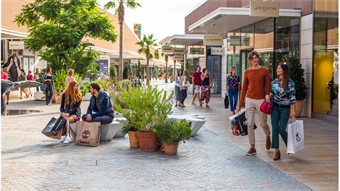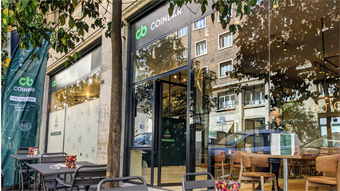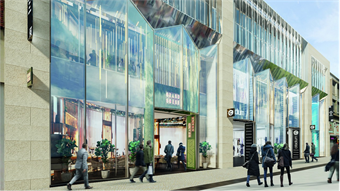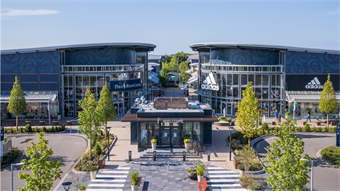Time Out Market exploits space to restart
- In Interviews
- 15:58, 09 November 2020
- 1716 Views
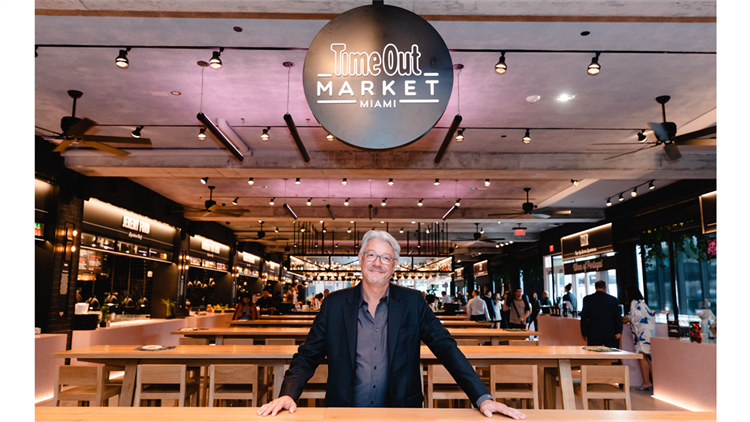
Until just a few months ago, the prospect of food and beverage (F&B) tenants attracting crowds of diners to an asset was music to a landlord’s – and an operator’s – ears.
Over half a year on, and the global pandemic has altered everything that seemed a given in retail. F&B, a vital footfall driver, has proved highly vulnerable to the coronavirus crisis. While hygiene protocols have become a resolvable issue, social distancing has made everything more complicated. And as the warmer months become a distant memory in the northern hemisphere, ad hoc outdoor space will also cease to be a solution.
Time Out Market, a food hall concept which was launched in Lisbon six years ago, benefits from large, covered assets which have space on their side. And as the pandemic rolls on, CEO Didier Souillat is preparing to welcome further independent operators across the global food hall business with a new urgency – this time, it’s about helping save some small firms from the chop.
‘A lot of chefs have lost their brick and mortar premises in the cities where we operate, so we’re looking for ways that they can come and join us. They don’t need a bank loan to buy a kitchen – they can just come and cook,’ Souillat says.
Instant hit
The flexible Time Out Market formula was pretty much an instant hit when Time Out Market Lisboa opened in 2014. The concept is sophisticated – Time Out, known for more than 50 years for offering editorial advice on what to do in cities – made the sideways move to curating the content of a food market instead.
Lisbon’s 24 restaurants, eightbars, half a dozen shops and a high-end music venue rub up against some of the city’s best known (and longest-running) market vendors of meat, fish, fruit and flowers. Selected by Time Out editors, the businesses can stay in the market from one week to a maximum of three years, to keep the concept extra fresh.
Following its success, five new Time Out Markets opened in North America in 2019 in Miami, New York, Boston, Montréal and Chicago. The future pipeline includes Dubai, Porto, London and Prague.
Shuttered
Unsurprisingly, 2020 saw the entire portfolio shuttered temporarily. ‘We closed everything in March, on the whole ahead of government requirements to do so,’ Souillat says. ‘We thought it was the right thing to do. It was a big blow as we were gathering serious sales momentum, after opening five new markets last year. However, we are reopening with safety front of mind. We relaunched Lisbon in early July, Montreal in mid-July, then Boston and New York. The next will be Miami.’
How do you reopen a busy market in the middle of a pandemic? ‘Our first thought was to beat the fear factor, but bring in the fun factor as well,’ Souillat underlines. ‘It’s much easier to socially distance in a 50,000 ft² space than in a small restaurant. Our smallest market is 20,000 ft², and Lisbon is the largest market of its kind in the world.
‘Not only that, most of our markets are new in the US, so we already had UV filtering systems in Chicago, and have been able to add hospital grade filters to the others. Ample space, circulating air, are boosted by health and safety vestibules, which have become the only way to enter our markets. In terms of the stalls, we have plexi-glass partitions where necessary, but they have been designed with care. They all carry inscriptions, personalised by local artists, poets, even politicians, so when you are sitting there, you always have something to read; the staff all have personal protective equipment (PPE). You can go up to the counter to place your order, or do it via the app - everything is also cashless.
'We have also developed new for us delivery services - we’re working with specific partners in different territories. Take-out can be pre-ordered in the app, even from multiple vendors in Lisbon, and we’ll compile the order and deliver kerb-side.’
Safe haven
For Souillat, Time Out Market’s original concept has grown more meaningful during the pandemic. ‘We are the safe-haven for a battered restaurant industry,’ he says. ‘We are landlords as well as tenants, so we understand both sides.’ The group has been negotiating hard on its own costs throughout the crisis, carving out some important concessions.
‘Some landlords have been flexible. They understand that a 50,000 ft² retail space is hard to relet. We have proven that the food hall model is here to stay, it is not a fad, more and more people are understanding the value of those models,’ he explains. ‘There’s a need for safe social gathering, for togetherness outside the home. Landlords understand the value and authority that the Time Out brand creates, and the footfall that comes with it.’
Social distancing means that tenants have been brought back in stages, and the markets are only half full. ‘The revenue pie is much smaller than it used to be,’ Souillat affirms. ‘But we’re helping restore footfall in city centres; landlords are seeing their nearby office tenants also return.’
Putting the pandemic to one side, plans are unfolding for further expansion. ‘We are seeing more and more interest globally from partners that want us to be a part of their retail developments in the future. We will be opening Dubai in February 2021, with 36,000 ft² in front of the Burj Kalifa, and launching Porto in the fourth quarter of 2021. London is coming in 2022 in Waterloo and further projects are also in the works.’ Souillat concludes.


